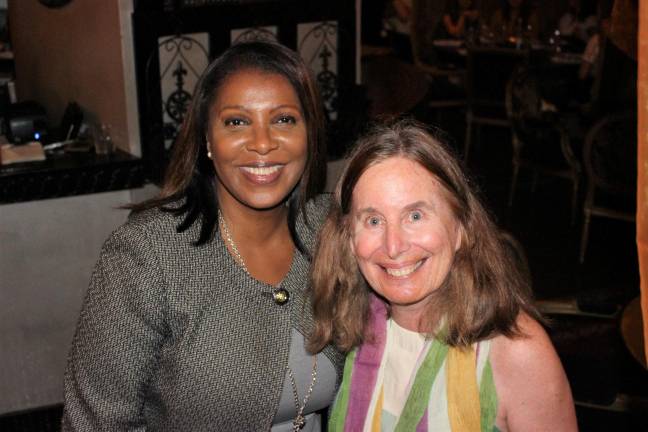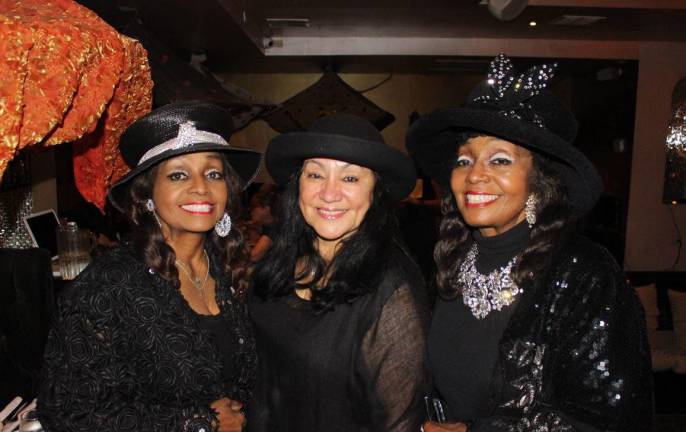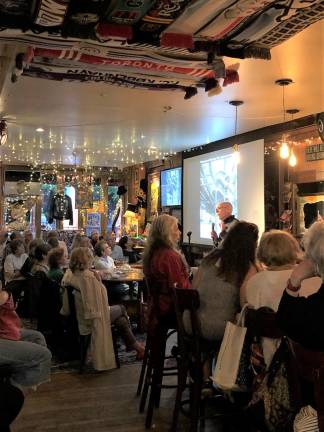An online fundraising platform that enabled charities to receive donations from the public abruptly ended operations, cut off all communications – and stopped disbursing the funds it owed to its nonprofit clients, a dozen of them told Straus News.
The alleged victims include dance companies, theater troupes, opera companies, arts groups, preservation groups, PTAs, immigrant support groups, senior groups, educational advocacy groups and organizations affiliated with churches and synagogues.
All of them had relied on NYCharities.org, a nonprofit e-giving web site headquartered at 50 Broadway and founded in 2004 by Cristine Cronin, its president, mostly to help small-sized charities with modest budgets and staffs manage their philanthropic giving.
While there were a few glitches along the way, that’s basically what it did for 15 years, most of the nonprofits agreed. Then in May and June, the portal continued to process the donations it received, but those funds never reached their intended recipients, those groups allege.
Now, they are telling their stories to at least two sets of investigators:
State Attorney General Letitia James launched a probe on July 31.
Separately, Manhattan District Attorney Cy Vance’s Major Economic Crimes Bureau has also been gathering facts and taking statements from dozens of the nonprofits.
In a statement, James said NYCharities.org had “failed to distribute hundreds of thousands of dollars to New York charities over the past several months ... inexcusably depriving charities of their donors’ generosity.”
“Leaving New York’s charitable organizations high and dry by denying them what they are owed is unacceptable,” she added. “My office is launching this investigation because we remain committed to the protection of New York’s charitable sector, and those who contribute to it.”
James said the probe, conducted by the AG’s Charities Bureau, is based on over 100 complaints from nonprofits and individuals. The claims of unpaid contributions range from $200 to more than $100,000, she said.
Vance’s office declined to comment.
No one was reachable at NYCharities. Phone calls on Aug. 23 and 26 went immediately to voice mail, and three messages left by Straus News were not returned.
Cronin also didn’t respond to two emails sent to the last known address she maintained at the platform, whose website was offline.
Even a Beer-Tasting Was Impacted
It’s hard to overstate the corrosive impact of the scandal on so many of Manhattan’s tiny jewel-box nonprofits, like Friends of the Upper East Side Historic Districts, which advocates to preserve the neighborhood’s architectural legacy, livability and sense of place.
“It’s incredibly disconcerting for a small organization like Friends,” said Rachel Levy, the group’s executive director. “It has the potential to have a real destabilizing effect on our ability to keep our essential functions going, and it has certainly shaken our organization, from the board leadership to the staff to the donors.
“... It’s incredibly scary,” she added.
Friends relied on the stream of donor cash that flowed from its givers through NYCharities for general fundraising that “kept the doors open and the lights on and supported our mission and core advocacy work,” Levy said. In addition, it used the portal to process credit card payments for specific events, like lectures, walking tours and tickets for galas.
But between May 1 and June 30, Friends received none of the intended gifts. Big-ticket items were impacted. The run-up to the annual autumn fundraising gala the nonprofit holds at the Metropolitan Club, at $750 per person, got underway in the spring.
And small-ticket items were affected, too.
On June 20, for instance, at Ryan’s Daughter on East 85th Street, Friends sponsored “Step in, Stand Clear, Drink Up!” Members paid $15 via NYCharities for the beer-tasting-cum-lecture, in which the architectural historian Francis Morrone discussed public transportation in Yorkville.
They lost their money. And Friends never saw a dime.
“Our constituency of donors who support Friends rely on having a consistent secure method of sending their support to us, and so from a donor perspective, it sends a cloudy message about the ability and competence of the organization,” Levy said.
Indeed, adds Friends member Kathleen Steed, who bought a ticket to the Morrone lecture, “When donors are bilked of their funds, it influences public perception of charities, which almost always leads to diminished donations.”
Steed, an Upper East Side senior who lives alone and donates modest sums to charities that support older people, recently checked her bank statements and discovered that two other gifts she made, to Health Advocates for Older People, at 708 Third Ave., and the Radical Age Movement, 1 East 53rd St., had also been processed through NYCharities.
“It is despicable that NYCharities appears to have been siphoning funds meant to help thousands of people in need,” she said.
“Fraud Alert!"
“It’s a terrible breach of fiduciary trust,” said Andra Moss, the programs director at Landmark West! “Nonprofits entrusted them with certain back-office elements of their jobs so their time and resources could be better spent on their missions – and it appears that trust was taken advantage of.”
The Upper West Side advocacy group had only minimal exposure itself, just a pair of donations and a couple of hundred dollars in the pipeline, Moss said. But when she realized something was amiss, she sprang into action.
She started Googling NYCharities and cross-checked the group with the language used in standard donor appeals. Moss then fired off 98 emails – entitled “NYCharities Fraud Alert” – to arts groups, dance groups, church groups, PTAs, immigrant advocates and others to give them a heads-up that they could well have been victimized.
Now, like many philanthropic experts, she’s worried about the fallout yet to come. “Nonprofits may not have the backstops in place to recoup these loses,” Moss said. “Do they have insurance in place to replace these loses? Some may, and some may not.”
Among the other nonprofits left reeling:
* Class Size Matters, at 124 Waverly Pl., which advocates for smaller classes for at-risk children in the city’s public schools and has been using NYCharities since it was awarded nonprofit status by the IRS in 2004.
The group lost $7,000, most of it from its annual fundraiser at the Casa la Femme restaurant on Charles Street on June 19, where roughly 80 people bought tickets in the $125-to-$200 range.
“When you do a big fundraiser you don’t expect to lose a lot of money,” said executive director Leonie Haimson. “It has been devastating for us, simply devastating.”
* Little Essentials, at 15 Warren St., which provides strollers, diapers, blankets, bassinets, baby wipes and baby carriers to needy children under the age of five, often shipping the urgently needed supplies to 22 partner agencies around the city from its warehouse in Tribeca.
“We lost a little over $2,600, and that goes a really long way for us,” said Wendy Moore, the nonprofit’s executive director. “It basically pays to transport donated items from around the city for close to half a year.”
Can the transport still be provided? Can the gap be closed? “It’s been tough,” Moore said. “People are busy, and they’re in summer vacation mode now.
“And we’re continuing to lose money through lost donations that would still be coming in – if we hadn’t lost the recurring donations that we’d been getting through NYCharities,” she added. “People set up those donations once, but they haven’t been ready to do it a second time yet.”
“It has been devastating, simply devastating.” Leonie Haimson, executive director of Class Size Matters, which lost $7,000


